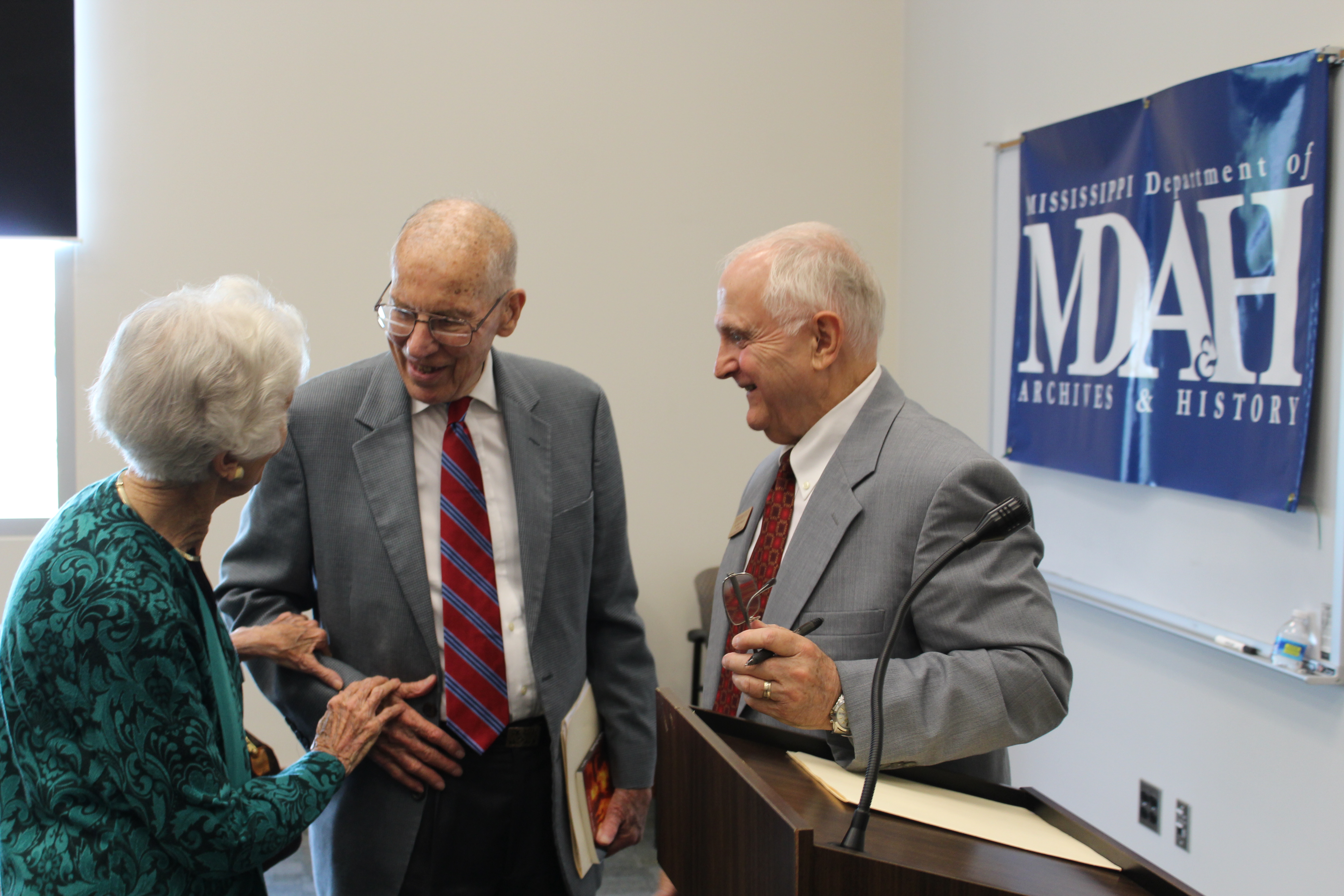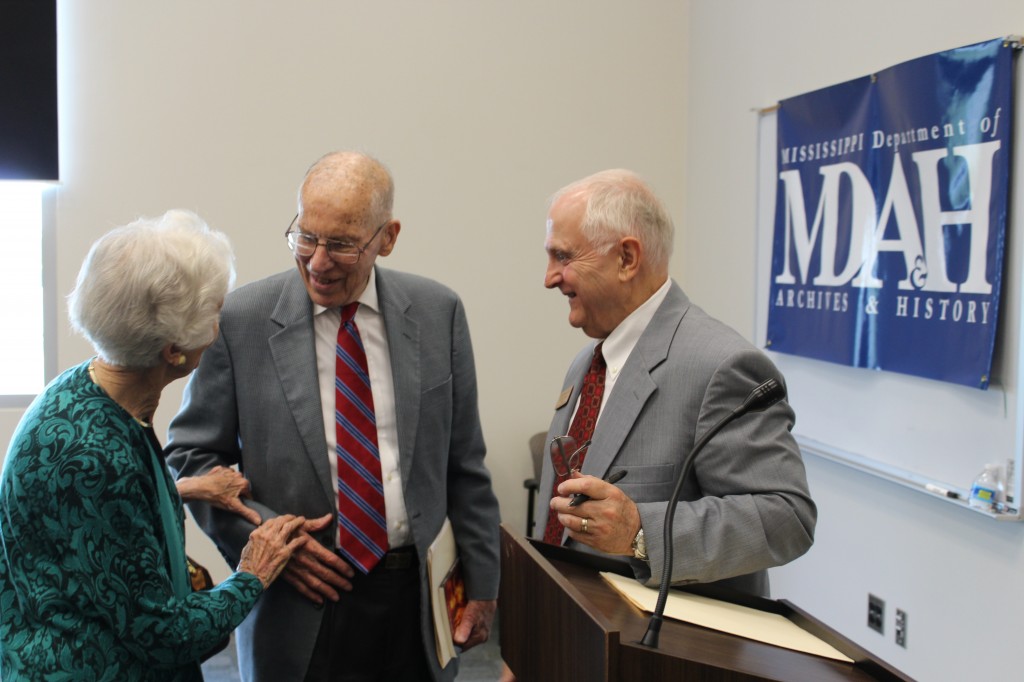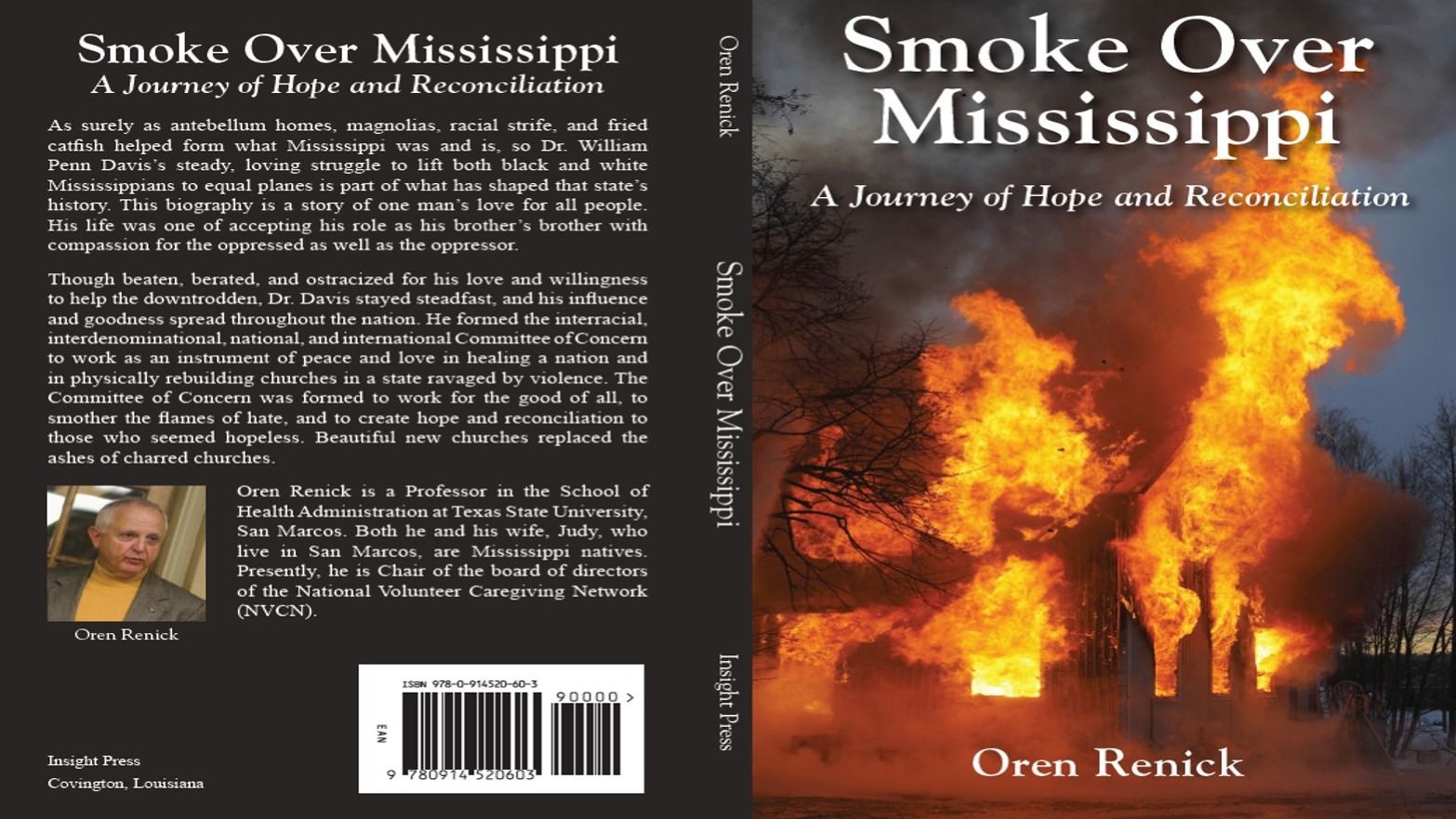
By Natalie Bell
Special to The Mississippi Link

During his recent book talk at the Mississippi Department of Archives and History, Texas State University professor Oren Renick lifted a veil of silence that hid a history, long documented, yet little known in the present era of the civil rights work of the late Rev. Dr. William P. Davis.
Renick’s book, titled “Smoke Over Mississippi,” is a biography of Davis’ 1960s interracial work on behalf of the Mississippi Baptist Convention.
Davis was a friend and mentor to Renick, who was a graduate student at Baptist-affiliated Mississippi College in the late 1960s, and began researching the Baptist mission leader’s work in those days.
Besides Davis’ key role in helping build two statewide, black Baptist institutions, he orchestrated a national, interracial and interdenominational movement, called the Committee of Concern, to aid black churches burned due to Ku Klux Klan violence in the 1960s.
During the unforgettable summer of 1964, Renick described Davis’ work fighting for justice, while at the same time another Mississippi preacher was fighting darkness, referring to Edgar Ray Killen, who was later convicted of planning and directing the murders of three civil rights workers.
“It was a paradigm-shifting moment for Mississippi,” Renick said.
Renick was featured author June 15, at “History is Lunch,” the brown bag lunch series at MDAH. His presentation drew a diverse audience of Baptists, historians and archivists, writers and others.
In response to a question about how Davis was received by his contemporaries at the Mississippi Baptist Convention, Renick revealed that reaction to Davis’ work was “somewhat mixed.” At the time, a number of people criticized Davis, said Renick.
The white Baptist preacher had made a commitment that was rare during the time and place that he lived to live a life of “integrity without compromise” as a humanitarian, as his “‘brother’s brother,’” as he put it.
“In some ways Bill Davis is more appreciated by those outside the state Baptist Convention,” said Renick.
Gov. William Winter personally introduced Davis’ biographer and acknowledged that, long before he got involved in state government, it was Davis who changed his thinking on the race issue.
“In those black days of the 1950s and 1960s,” said Winter, recalling Davis’ fight to rebuild Negro churches, “in that relationship, I came to know Bill Davis, and he made me feel ashamed.” At the time, Winter said he was “not remotely partial to the idea of advancing interracial relations.”
Audience members at the book talk included Charles Holmes, a former chair and professor of the Political Science Department at Jackson State University – who currently teaches at Tougaloo College. Holmes remembered meeting Davis in the late 1960s, through the Rev. Thomas B. Brown, then pastor of Mt. Helm Baptist Church, where Holmes became a member in 1966.
“He was different in the way he talked and related to black people,” said Holmes of Davis.
The two discussed classes and other activities at the Mississippi Baptist Seminary, which is located now, as it was then, not far from Mt. Helm in the historic Farish Street District.
Hewing to traditional narratives when teaching the Civil Rights Movement can inadvertently exclude the work of people like Davis, said Holmes.
“There were quite a few whites that played a part. He (Davis) didn’t receive the recognition he deserved.”
“Smoke Over Mississippi’’ will be used in some of the Christian Studies classes of Professor John Meadors at Mississippi College. Renick will also sign copies of his book during a fall visit to the Clinton campus.


Be the first to comment